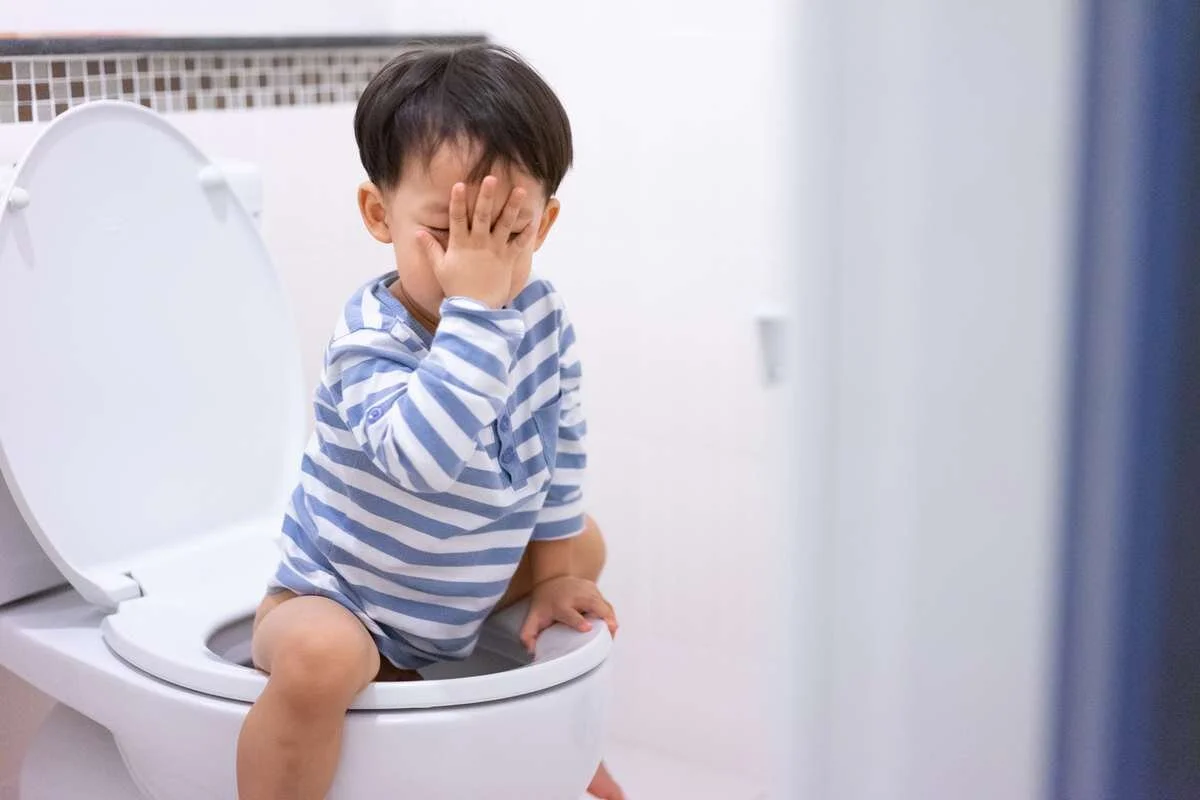Potty Training and Sleep Regression
What can be almost as trying as teaching your child to sleep through the night? Toilet training! And in case you didn’t know yet: toilet training can actually affect sleep!
If you’re like me, you aren’t jumping the gun to teach your child to use the potty. No, changing diapers isn’t a lot of fun, but I’m just not quite ready to embrace accidents, learning how to wipe, and being out and about with no toilet and sight and hearing “ I need to go!”.
The other reason I’m not quite ready embrace this milestone is because I know that toilet training often has a negative effect on sleep. Just as there are sleep regressions associated with other major milestones (standing, talking, etc.), there will likely be a regression with the new skill of using the potty, and it will likely affect both naptime and night time sleep.
There are actually two separate components of toilet training: daytime training, and night time training. During daytime toilet training, your child is learning to control their bladder while awake. During night time training, they are learning to control their bladder while asleep (which is obviously a little more difficult!). Some kids learn both at the same time, but most learn daytime bladder control first.
Part of potty training is your child learning a new bodily sensory awareness. They have to notice that they pee or poop, in order to know that they need to use the toilet, and it’s this new awareness that may start waking them up from naps and during the night.
Another way that potty training can affect sleep is when kids learn that saying that they need to use the potty is a very effective “curtain call”. Little ones quickly realize that this is a great way to delay bedtime and stay up a little later after mom or dad says “goodnight!”
So what to do? Some tips include:
Leave a pull-up on for naps until they’ve gone a week straight (at least!) staying dry. Also leave a pull-up on at night until there are never accidents any more. Some experts even recommend leaving a diaper on at night time until age 4 or 5, since it can take that long for the bladder to be big enough to hold a full night’s urine or for them to develop the ability to notice the need to urinate while asleep. That way you can be sure that you aren’t asking the (biologically) impossible!
Limit food and drinks two hours before bedtime so that they have an empty bladder when they go to sleep.
Have them try to use the potty before bed.
Remember the dream feed? Consider trying to get one more potty trip in before you go to sleep by waking your child up before you go to bed and have them use the bathroom one more time.
Make sure your child knows it’s OK to get up at night to use the potty if they need to! Some kids are so worried about having an accident that it affects sleep a bit.
Finally, keep the focus on potty training over getting sleep for now. Eventually your child will be potty trained and you will go back to sleeping! And if you weren’t sleeping to start with and want to change that, take my free 3-minute quiz: The Positive & Practical Sleep Assessment. I created this quiz to help parents find the likely cause of their child’s sleep issues and give them a simple starting point for addressing them.
